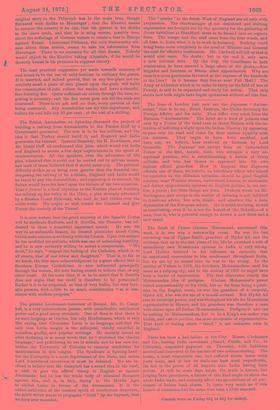The death of Prince Gholam Mahommed, announced this week, is
in one way a noteworthy event. He was the last surviving son of Tippoo Sahib, grandson of Hyder Ali, and the evidence that up to the last years of his life he exercised a sort of ascendancy over Mussulman opinion in India is very strong. Lord Halifax believed in his influence so earnestly that he sanctioned concessions to him condemned throughout India, but we are by no means sure he was in the wrong. In the mutiny at Vellore in 1806, the Southern Mohammedans used his name as a rallying-cry, and in the mutiny of 1857 he might have been a leader of insurrection. The fact illustrates clearly the Mohammedan idea of pedigree. Gholam Mohammed's power rested unquestionably on his birth, but so far from being a patri- cian in the English sense, he was the grandson of a corporal, Hyder Ali, who was the son of a menial servant. But Hyder Ali rose to sovereign power, and was throughout his life the Mussulman representative in Mysore, and his grandson was therefore a man with claims upon all Indian Mohammedans. Pedigree is and can be nothing to Mohammedans, but to be a King's son makes you visible, and cateris paribus, the most acceptable of representatives. That kind of feeling about " blood " is not unknown even in England.


































 Previous page
Previous page